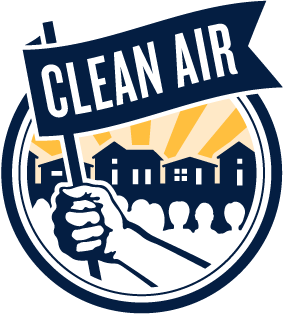Tonawanda Coke to Appear in US District Court on Tuesday
On Tuesday, September 4th at 10:30am Tonawanda Coke and CEO Paul Saffrin are ordered to appear back in US District Court in front of the Honorable Judge William Skretny regarding potential violations of the company’s probation from their 2013 criminal sentence.
Federal probation officials contend the company’s emissions are a threat to human health and the environment and the company violated its pledge not to commit any other crimes after it’s sentencing in 2013. The NYS Department of Environmental Conservation has issued 176 violations to the facility since January.
Tonawanda Coke’s collapse of their heat waste tunnel earlier this year does not bear well for the future of the facility to remain in operation. In addition to the equipment failure, the Department of Environmental Conservation issued a Cease and Desist of the company’s coking operations this July. Despite the order, Tonawanda Coke has continued to operate.
Clean Air calls on the courts, the Department of Environmental Conservation and the US Environmental Protection Agency to ensure that Tonawanda Coke is accountable to workers and the community if the company is allowed to remain in operation, or if CEO Paul Saffrin decides to shut it down.
Clean Air’s requests include:
- The US District Court, the Environmental Protection Agency and the New York Department of Environmental Conservation require the company to submit and make public an emergency shut down plan, which includes how the company will contain fugitive air emissions in case of further collapse.
- Clean Air does not believe that putting people out of work is the answer. If CEO Paul Saffrin decides to take away the ability for his workers to provide for their families, instead of investing the protections to run a clean sustainable business, we request that a portion of fines are used to help workers gain skills for gainful employment elsewhere. In addition, Clean Air is calling on Judge Skrenty to require Tonawanda Coke to fund continued health monitoring of all employees, including temporary workers, to guard against any potential occupational health issues.
- Clean Air is calling on Judge Skrently and the New York State Department of Conservation to require Tonawanda Coke and CEO Paul Saffrin commit and set aside funding for future site remediation in case of closure. Tonawanda Coke sits on river front property, in a neighborhood with families and children. Paul Saffrin should commit the appropriate funds to ensure site remediation to redevelop the site in a way that is consistent with the Tonawanda Tomorrow economic development plan.
Clean Air members who live in neighborhoods adjacent to the company’s property have experienced the egregious behavior of Tonawanda Coke for over a decade. Resident organizing resulted in a 2009 raid of the facility by 50 federal and state agents for ongoing environmental health violations. In 2013, a federal jury found the company and Mark Kamholz, environmental manager, guilty of 14 criminal charges, including violations of the federal Clean Air Act as well as violations of the Resource Conservation and Recovery Act, in regard to the improper disposal of benzene, a known human carcinogen.
Tonawanda Coke has also had a long history of endangering workers at their plant, in at least one instance resulting in death. In 2014, U.S. Department of Labor’s Occupational Safety and Health Administration cited the plant and Kirchner LLC, which provides Tonawanda Coke temporary workers, with 17 serious violations. The violations included putting employees at risk of falls, amputations and crushing injuries, according to the agency’s press release. OSHA defines a serious violation as “when death or serious physical harm could result from hazards about which the employer knew or should have known. Two years after OSHA cited the company with these violations, a 60-year-old employee, Richard Wade, died after he was pulled into the rotating shaft of a coal elevator. In a statement to the Buffalo News, OSHA stated the death could have been prevented if Tonawanda Coke followed federal standards.
Tonawanda Coke has been able to operate in this way because we exist in a economic system that allowed them to. We elect politicians that have enacted laws that have allowed them to. We participate in a culture that has allowed them to. This company is not an isolated actor, and until we shift the types of businesses we have in our economy, and ensure that people are put first over shareholders and CEO’s wealth, the Tonawanda Coke’s of the world will continue to exist, and working class people and people of color will continue to bear the burden, and have to clean up the mess.
We encourage our members to attend this history hearing. For more information contact Brian or Rebecca at 716-852-3813.
